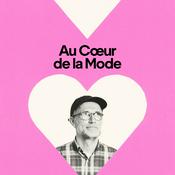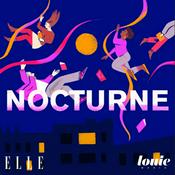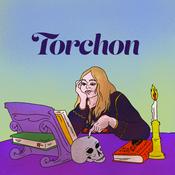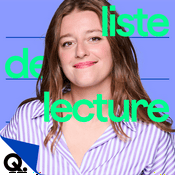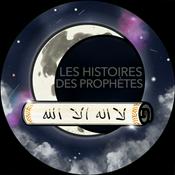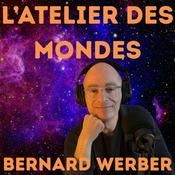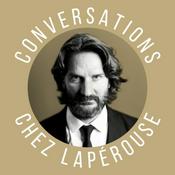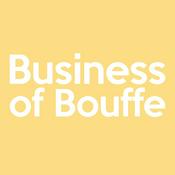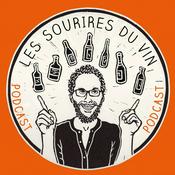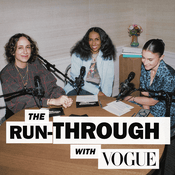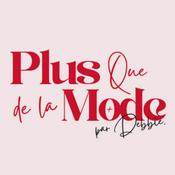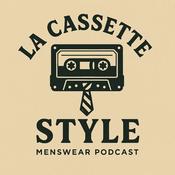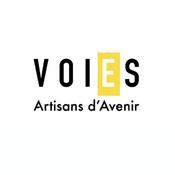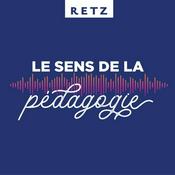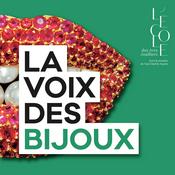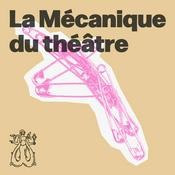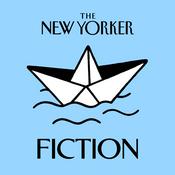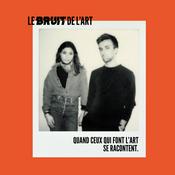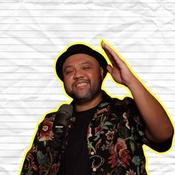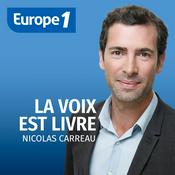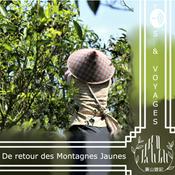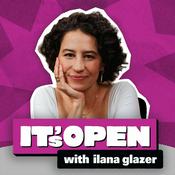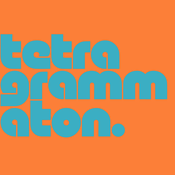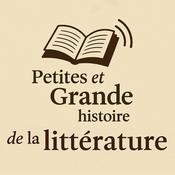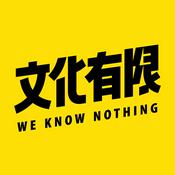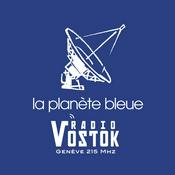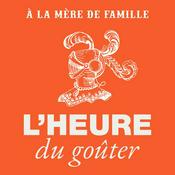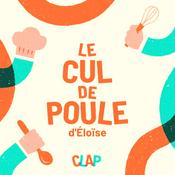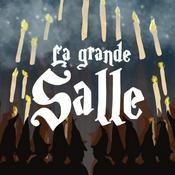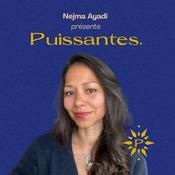Books & Writers · The Creative Process: Novelists, Screenwriters, Playwrights, Poets, Non-fiction Writers & Journalists Talk Writing, Life & Creativity
Novelists, Screenwriters, Playwrights, Poets, Non-fiction Writers & Journalists Talk Writing · Creative Process Original Series
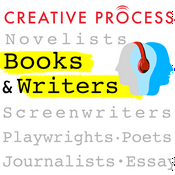
Dernier épisode
358 épisodes
Who Are We? What Makes Us Care? Jim Shepard, Neil Patrick Harris, John Patrick Shanley & Artists Share Their Stories
11/2/2026 | 13 minCan curiosity and empathy be taught? How can we expand our sense of solidarity through stories? In this episode, we explore the internal dialogues of artists, actors and writers to ask what it means to step into someone else's shoes.
(0:00) Novelist Jim Shepard discusses Literature as a Tool for Emotional Education and Exploring History
(2:05) Tony Award-winning Actor Neil Patrick Harris on Being Moved by Theater and its Ability to Bridge Worlds
(3:55) Novelist Katie Kitamura on How a Book is Made in Collaboration with the Reader
(5:00) Screenwriter, Playwright Laura Eason on Inhabiting the Hearts of Characters Different from Ourselves
(6:03) Academy Award-winning Director Sharmeen Obaid-Chinoy on the Art of Visual Storytelling
(6:37) Cinematographer, Director Benoit Delhomme on the Freedom of Handheld Cinematography
(7:19) Author Etgar Keret on Looking for Humanity through Shared Intention
(8:18) Viet Thanh Nguyen – Opposing Power through Expansive Solidarity
(9:27) Adam Moss – Author, Fmr. Editor New York magazine on “The Work of Art”
(10:29) John Patrick Shanley – Tony & Academy Award-winning Writer, Director on Finding Value in Ordinary Experiences and the Creative Power of Daydreaming
(11:56) Pulitzer Prize-winning Journalist Nicholas Kristof on Why Individual Stories are Necessary to Generate Connection
To hear more from each guest, listen to their full interviews.
Episode Website
www.creativeprocess.info/pod
Instagram:@creativeprocesspodcastThe Healing Power of the Arts: Longevity, Immunity & Wellbeing w/ DAISY FANCOURT - Highlights
11/2/2026 | 20 min"Within society, we seem to have separated the arts out, so they're not so much a part of our daily lives. Often there's something that we feel we should do as a kind of leisure activity or hobby if we have enough time or if we have enough money to engage in them. And this is so fundamentally different to how humans engaged with the arts. When we look back thousands of years, it just was part of the everyday, and I feel like that's a major loss within contemporary societies."
Daisy Fancourt is a Professor of Psychobiology & Epidemiology at UCL and the author ofArt Cure: The Science of How the Arts Transform Our Health. A pioneer in the field of psychoneuroimmunology, she directs the WHO Collaborating Center on Arts and Health, where her research influences global health policy and the integration of the arts into medical care.
(0:00) The Healing Power of the Arts: Longevity, Immunity & Wellbeing
(1:17) Singing to Daphne: How Daisy used singing to comfort her premature daughter in the ICU
(2:47) The Story of Russell: How a stroke survivor used art classes to reclaim his life, health, and identity
(5:23) A Planet of 8 Billion Artists: Tracing the evolutionary origins of creativity back 40,000 years
(8:58) Psychoneuroimmunology. Defining the biological mechanisms: how art reduces inflammation and cortisol
(12:42) Art & Longevity. How arts engagement can slow biological aging and alter gene expression
(18:24) Safeguarding Creativity. Why we should use AI for routine tasks but protect the human joy of the creative process
Episode Website
www.creativeprocess.info/pod
Instagram:@creativeprocesspodcast- Did you know that visiting a museum can lower your cortisol levels? Or that singing can bond a group faster than almost any other activity? We tend to think of the arts as entertainment, but science tells a different story. Today, we explore why creativity is hardwired into our biology and how it can be used to treat everything from postnatal depression to stroke recovery.
Daisy Fancourt is a Professor of Psychobiology & Epidemiology at UCL and the author ofArt Cure: The Science of How the Arts Transform Our Health. A pioneer in the field of psychoneuroimmunology, she directs the WHO Collaborating Center on Arts and Health, where her research influences global health policy and the integration of the arts into medical care.
(0:00) The Healing Power of the Arts: Longevity, Immunity & Wellbeing
(4:14) The Story of Russell: How a stroke survivor used art classes to reclaim his life, health, and identity
(9:01) A Planet of 8 Billion Artists: Tracing the evolutionary origins of creativity back 40,000 years
(15:30) The Chemistry of Connection. Why singing evolved before language and how it accelerates group bonding
(20:32) Psychoneuroimmunology. Defining the biological mechanisms: how art reduces inflammation and cortisol
(25:57) The Professional Paradox: Balancing the wellbeing benefits of art with the pressures of a creative career
(30:03) Predictive Coding & Play: Why the human brain needs improvisation and why we shouldn't outsource creativity to AI
(33:26) Singing to Daphne: How Daisy usedsinging to comfort her premature daughter in the ICU
(37:55) World Health Organization, Public Policy & Social Prescribing
(46:04) Art & Longevity. How arts engagement can slow biological aging and alter gene expression
(58:17) Finding Artistic Reverence in Nature
Episode Website
www.creativeprocess.info/pod
Instagram:@creativeprocesspodcast The Wisdom of Nature: Artists & Scientists on The Beauty & Fragility of Our Planet
09/1/2026 | 17 minIn this special edition, we hear from our guests from across the arts and sciences. From composers and poets to forest ecologists and climate envoys, they tell the story of our planet. Moving beyond the data of destruction, we explore the intelligence of nature, the ethics of what we eat, and the empathy required to save our future.
MAX RICHTER, Composer, Sleep, The Blue Notebooks
CARL SAFINA, Author, Becoming Wild
ADA LIMÓN, 24th US Poet Laureate
CYNTHIA DANIELS, Grammy Award-winning Sound Eng.
SUZANNE SIMARD, Finding the Mother Tree
JOELLE GERGIS, Lead Author, IPCC 6th Assessment Rpt
NOAH WILSON-RICH, CEO, Best Bees Company
INGRID NEWKIRK, PETA Founder
BERTRAND PICCARD, Solar Impulse Foundation
DAVID FARRIER, Author, Footprints
KATHLEEN ROGERS, Pres, Earth Day Network
ODED GALOR, Unified Growth Theory
PETER SINGER, Philosopher
GEOFF MULGAN, Another World Is Possible
CLAIRE POTTER, Welcome to the Circular Economy
CHRIS FUNK, Dir. Climate Hazards Car.
JENNIFER MORGAN, Special Envoy, International Climate Action
To hear more from each guest, listen to their full interviews.
Episode WebsiteSpeaking Out of Place - DAVID PALUMBO-LIU on Reclaiming Our Political Voices - Highlights
27/12/2025 | 11 minOn the urgent need to reclaim our political voices, the forces that silence dissent, and how art and poetry are crucial tools for survival
Our guest today is an activist scholar who believes the classroom is inseparable from the public square. David Palumbo-Liu is the Louise Hewlett Nixon Professor of Comparative Literature at Stanford University and a founding faculty member of Stanford’s Program in Comparative Studies in Race and Ethnicity. But his work has long reached beyond the academy. Through his book, Speaking Out of Place: Getting Our Political Voices Back, and his podcast of the same name, he insists that the great global crises of our time—from escalating wars and democratic failures to environmental collapse—are fundamentally crises of value and voice. His recent work has put him on the front lines of campus activism, challenging institutions, resigning his membership from the MLA, a move that highlights the ethical cost of speaking truth to power. We’ll talk about what he calls the "carceral logic" of the modern university, why art and poetry are crucial tools for survival in times of war, and what he tells his students about preparing for a future defined by uncertainty. His perspective is rooted in literature, but his urgency is all about the world we live in now. We will discuss the forces that silence dissent, the "imperial logic" of AI, and what it means to be a moral, active citizen when the systems we rely on are failing.
“There is a dispute about what the American Dream is or how it would play out in different circumstances. The American dream has essentially been narrowed into a white Christian nationalist notion of things so that everything that falls outside what they imagine that to be is not only undesirable, but should be the subject of extermination, deportation, and detention. I am heartened by the fact that more of our 'better angels' are emerging with a more capacious and expansive notion of what the American dream could be.”
Episode Website
www.creativeprocess.info/pod
Instagram:@creativeprocesspodcast
Plus de podcasts Arts
Podcasts tendance de Arts
À propos de Books & Writers · The Creative Process: Novelists, Screenwriters, Playwrights, Poets, Non-fiction Writers & Journalists Talk Writing, Life & Creativity
Books & Writing episodes of the popular The Creative Process podcast. To listen to ALL arts & creativity episodes of “The Creative Process · Arts, Culture & Society”, you’ll find our main podcast on Apple: tinyurl.com/thecreativepod, Spotify: tinyurl.com/thecreativespotify, or wherever you get your podcasts!
Exploring the fascinating minds of creative people. Conversations with writers, artists & creative thinkers across the Arts & STEM. We discuss their life, work & artistic practice. Winners of Pulitzer, Oscar, Emmy, Tony, leaders & public figures share real experiences & offer valuable insights. Notable guests include: Neil Gaiman, Roxane Gay, George Pelecanos, George Saunders, Viet Thanh Nguyen, Jericho Brown, Joyce Carol Oates, Hilary Mantel, Daniel Handler a.k.a. Lemony Snicket, Siri Hustvedt, Jeffrey Sachs, Jeffrey Rosen (National Constitution Center), Tom Perrotta, Ioannis Trohopoulos (UNESCO World Book Capital), Ana Castillo, David Tomas Martinez, Rebecca Walker, Isabel Allende, Ian Buruma, Aimee Nezhukumatathil, Ada Limon, John d’Agata, Rick Moody, Paul Auster, Robert Olen Butler, Yiyun Li, Rob Nixon, Tobias Wolff, Yann Martel, Junot Díaz, Edna O’Brien, Eimear McBride, Jung Chang, Jane Smiley, Marge Piercy, Maxine Hong Kingston, Sara Paretsky, Carmen Maria Machado, Neil Patrick Harris, Jay McInerney, Etgar Keret, DBC Pierre, Adam Alter, Janet Burroway, Geoff Dyer, Jenny Bhatt, Hala Alyan, E.J. Koh, Jeannie Vanasco, Lan Samantha Chang (Iowa Writers Workshop), Alice Fulton, Alice Notley, McKenzie Funk, Emma Walton Hamilton, Krys Lee, Douglas Kennedy, Sam Lipsyte, Charles Baxter, Azby Brown, G. Samantha Rosenthal, Ashley Dawson, Douglas Wolk, Suzanne Simard, Seth Siegel, Richard Wolff, Todd Miller, Giulio Boccaletti, Amy Aniobi, among others.
The interviews are hosted by founder and creative educator Mia Funk with the participation of students, universities, and collaborators from around the world. These conversations are also part of our traveling exhibition.
www.creativeprocess.info
For The Creative Process podcasts from Seasons 1 & 2, visit: tinyurl.com/creativepod or creativeprocess.info/interviews-page-1, which has our complete directory of interviews, transcripts, artworks, and details about ways to get involved.
Site web du podcastÉcoutez Books & Writers · The Creative Process: Novelists, Screenwriters, Playwrights, Poets, Non-fiction Writers & Journalists Talk Writing, Life & Creativity, Au Coeur De La Mode ou d'autres podcasts du monde entier - avec l'app de radio.fr

Obtenez l’app radio.fr gratuite
- Ajout de radios et podcasts en favoris
- Diffusion via Wi-Fi ou Bluetooth
- Carplay & Android Auto compatibles
- Et encore plus de fonctionnalités
Obtenez l’app radio.fr gratuite
- Ajout de radios et podcasts en favoris
- Diffusion via Wi-Fi ou Bluetooth
- Carplay & Android Auto compatibles
- Et encore plus de fonctionnalités


Books & Writers · The Creative Process: Novelists, Screenwriters, Playwrights, Poets, Non-fiction Writers & Journalists Talk Writing, Life & Creativity
Scannez le code,
Téléchargez l’app,
Écoutez.
Téléchargez l’app,
Écoutez.

